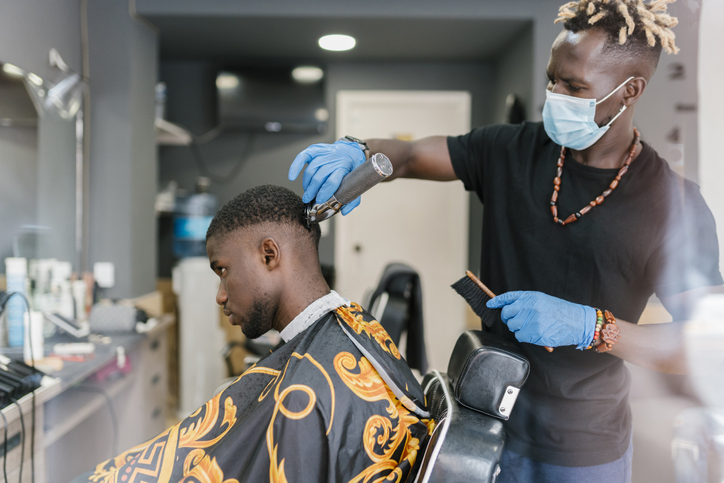
Source: Westend61 / Getty
In the Black community, the only place that is possibly more sacred than church is the barbershop. Like Antonio Johnson stated in his book You Next: Reflections in Black Barbershops, “[Barbershops] are where Black men can speak freely and receive feedback about who we are, who we want to be, and what we believe to be true about the world around us.” And it is with that understanding that Maryland barber Mike Brown is trying to talk to customers about the coronavirus vaccine and dispel any of their fears or suspicions.
At his Hyattsville spot, The Shop Hair Spa, Brown relays how skepticism in the Black community will have Black people, especially men, at death’s door before they think about seeking medical help. “They won’t really go to a doctor or see a doctor until their arm is about to fall off.” For his part, however, he is hoping to convert his customers toward having faith in the coronavirus vaccine.
Dr. Stephen Thomas, from the University of Maryland, points to the infamous social experiment, “The Tuskegee Study of Untreated Syphilis in the Negro Male,” as the culprit for why Black people in America have such distrust. Starting in 1932, 600 Black men were unknowingly infected with the syphilis virus by the United States government and tracked for forty years so its effects could be studied. Although the standard treatment for the disease – penicillin – had become widely available by 1947, none of the men were ever told they would never be treated.
The legacy of this study in Black America, as Dr. Thomas frankly told the Baltimore Sun, is now “before you come in here to prick for my blood or ask for my DNA, I need to trust you.”
Last year, he reached out to Brown to lead an outreach program for Black men who may not place high trust in the government or be diligent when it comes to medical care. The idea is to leverage someone’s trust as focal as your neighborhood barber and get people more open towards the vaccine. “The relationship we have with customers, they take heed,” Brown said. “I take pride in relaying correct information to our community.”
And so far, it appears to be working. Three of his customers have gotten inoculated, and even some of the older clientele is becoming more optimistic. Kerdell Porter, Brown’s 60-year-old mailman and customer who used to think the vaccine was a scheme to kill Black people, spoke things over with his wife and might be coming around as well. “If they call me tomorrow, I’m going to be there!”
















